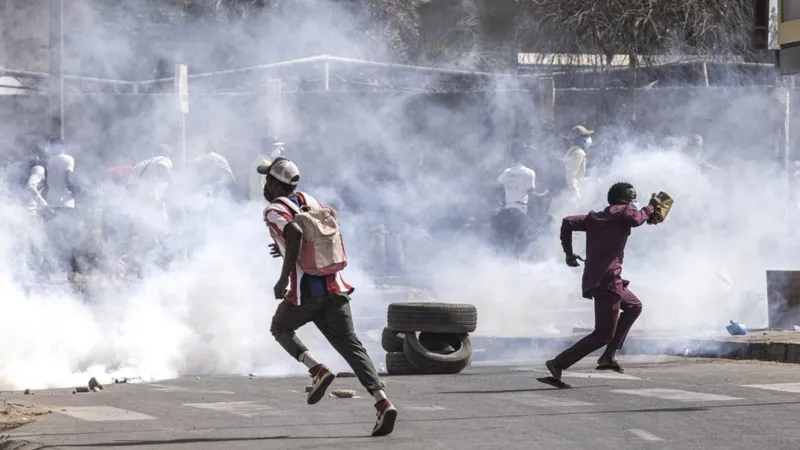Election Chaos in Senegal: President Macky Sall Denies Fault
Senegal’s President, Macky Sall, defended his decision to delay this year’s elections in an interview with the BBC, stating that he had no regrets despite the deadly protests that ensued. Sall emphasized that the decision was not made unilaterally but was a response to concerns raised by parliamentarians.
The attempt to postpone the elections by 10 months was met with resistance from Senegal’s top court, leading to the rescheduling of the vote to take place on Sunday, a month after its original date. Sall reiterated that all actions taken were within the legal framework, expressing no apology for his actions.
The controversy arose when Sall announced the delay just three weeks before the scheduled election, citing the need to resolve disputes over the eligibility of presidential candidates. Critics accused him of attempting to extend his term, which Sall vehemently denied, attributing the concerns to opposition politicians.
Violent clashes erupted between police and protesters following Sall’s announcement, resulting in three fatalities. Many feared that Senegal’s reputation as a beacon of democracy in a volatile region was at risk, given its history of peaceful transitions of power without military intervention.
Sall dismissed allegations of an information campaign against Senegal and himself, attributing the unrest to the short timeframe between the original and rescheduled election dates. He asserted that his decision was not motivated by a desire to cling to power, reiterating his commitment to abide by the constitutional term limits.
Last week, prominent opposition leader Ousmane Sonko and his party’s presidential candidate, Bassirou Diomaye Faye, were released from prison under a presidential amnesty. Sonko, a vocal critic of Sall, had faced multiple charges that he claimed were politically motivated to exclude him from the election.
Sall refuted claims of political motivation behind the charges against his rivals, asserting that politicians should be held accountable under the law regardless of their status. He maintained that the delayed elections would have provided opportunities for amnesty, allowing disqualified candidates to regain their rights.
Having served two terms, the maximum allowed by Senegal’s constitution, Sall reiterated his pledge not to overstay, vowing to step down if the next president is not elected by the designated deadline. Amidst a field of 19 candidates, including his former prime minister Amadou Ba and Bassirou Diomaye Faye, the elections remain crucial for Senegal’s democratic trajectory.



















